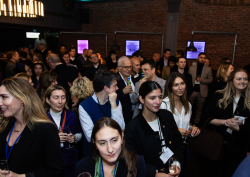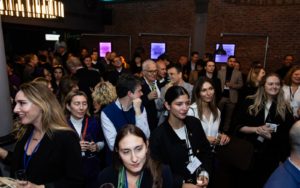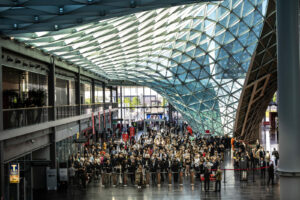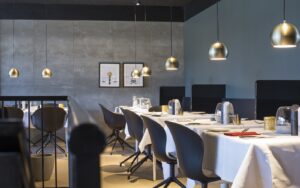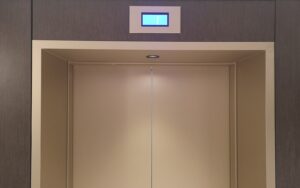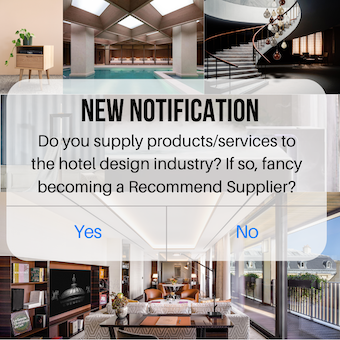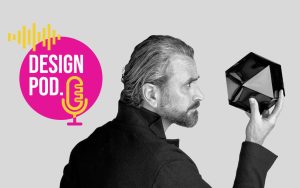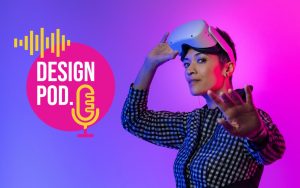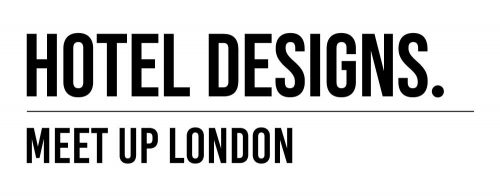Continuing our focus on technology in the arena of hotel design, Founder of DataThinkLab, Melanie Rozencwajg, continues on her mission is to help boutique hotels and chains unlock the potential of their data. In this second in a series of articles for Hotel Designs, Rozencwajg looks at what to do with the data once it has been gathered…

Consider a scenario at a prestigious hotel in London, which needs to increase room rates to fully operate within necessary margins. A thorough analysis of their data revealed the specific guests they should focus on: those with high spending habits and a preference for longer stays. By leveraging data from their Property Management System and User Generated Content, the hotel identified what guests with high purchasing power enjoyed most: its spacious rooms, historical significance, and central location. This insights spurred a strategic communication overhaul, introducing customised offerings and AI personalisation, which enhanced guest retention, satisfaction, and increased direct bookings and upselling.
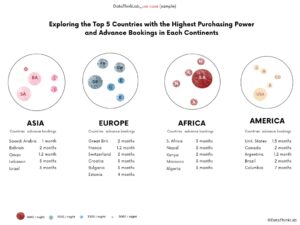
Image credit: DataThinkLab
Just as the London hotel case illustrates, data contains hidden stories and insights. However, uncovering these requires deep analysis and context comprehension. The popularity of SaaS data visualisation tools has led to the mistaken belief in quick fixes, overlooking the essential step of clearly defining the investigative question. This rush to apply technology can result in ineffective or misleading outcomes, as off-the-shelf solutions often fail to address the nuances of specific problems.
Beyond Technology: The Art of Interpretation
The real value in data lies in how it’s interpreted, combining business insight with strategic inquiry. This process entails analysing a wide range of data—custom metrics, product details, customer feedback, pricing strategies, behavioural insights and logistical data — gathered from multiple sources, ensuring accuracy and security. The key challenge is in enriching and analysing this data to create actionable insights.
Let’s explore a few use cases, where data has been interpreted in inspiring ways to serve the business as a driver for innovation and new experiences

Image credit: Bob W
Clienteling tools
Clienteling seeks to establish meaningful relationships between retailers and customers in the luxury industry. This is achieved by empowering sales associates with real-time data applications based on the customer’s profile. These digital tools could allow hotel staff to offer tailored welcomes and recommendations to returning guests, creating a seamless blend of digital and in-person interactions. Emphasising the value of personal connections, akin to luxury retail where 61 per cent of customers cherish such relationships. It fosters memorable experiences. Leaders like Kering have shown how personalised interactions build loyalty. Once costly and exclusive to large hotel chains, this technology is now more accessible, offering smaller hotel groups the chance to improve guest experiences affordably.
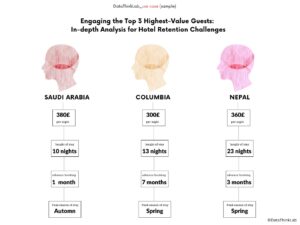
Image credit: DataThinkLab
Customisable Guest Experience and Personalised Upsell
Different platforms, like Duve, develop, thanks to AI, functionalities that empower hotels to create personalised guest experiences by providing tailored recommendations for local attractions, restaurants, and must-visit places in the area. This is complemented by a robust capability to upsell offerings specifically designed to meet the needs or desires of each guest.
Seamless Travel Experiences: Transforming the Hotel Stay
Emerging technologies are streamlining the travel and hotel experience, ensuring a smooth journey from the airport to the hotel. Imagine your Uber being synchronised with your flight’s arrival, waiting for you despite any delays. This seamless coordination reduces travel hassle, enhancing your arrival experience. Then, online check-in allows guests to submit all documents prior to arrival to avoid queues. Hence, once you reach your hotel, you’re personally greeted by a receptionist informed of your exact arrival time and check-in information, showcasing the hotel’s dedication to using technology for superior guest service. These innovations mark a move towards intuitive, guest-focused travel, where every detail, from landing to check-in, is meticulously planned for your comfort and convenience.
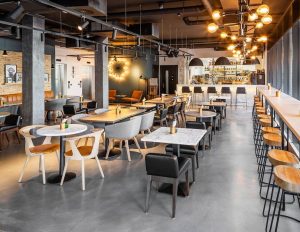
Image credit: Yotel
Data-Driven Customer Engagement Beyond the Stay
Data is increasingly crucial for fostering brand loyalty by shaping experiences that span before, during, and after a hotel stay. Observing brands outside the hospitality sector, like Nike, showcases how data and AI can cultivate communities and sustain engagement well beyond the initial purchase or stay. For instance, Decathlon, a sports retail brand, leverages customer data to offer tailored sports classes, enhancing customer relations and enriching experiences based on individual preferences beyond the shop. This approach not only deepens the customer-brand connection but also sets a precedent for personalised engagement across industries.
Supply Chain Efficiency and Sustainability
With sustainability gaining importance and upcoming EU regulations in 2025 requiring carbon assessments, the hospitality industry will face demands for transparency in suppliers’ CO2 emissions. Startups like Verteego are innovating with AI tools to automate supply chain processes in the retail industry, reducing waste and optimising inventory, enhancing eco-efficiency. These AI solutions might be soon key for hotels and retailers in selecting as well eco-friendly suppliers efficiently, meeting both regulatory and consumer eco-conscious demands. Implementing AI in supply management not only adheres to these demands but also attracts eco-aware corporate clients, positioning hotels as responsible, forward-thinking choices.
Enhancing Employee Engagement with Data
In an industry known for high employee turnover, leveraging data can significantly improve employee satisfaction and well-being. Clienteling tools are a prime example of this. By providing hotel employees with accessible guest data, these tools eliminate the need for time-consuming data entry, freeing staff to engage in what they do best: forming genuine connections with guests through personalised interactions. Moreover, addressing financial stress, a key concern in hospitality, startups like Rosaly are making a difference. Rosaly enables employees to access their earned salary on demand, mitigating the need to wait until month-end and reducing potential overdraft fees. This flexibility significantly improves employee satisfaction and is instrumental in lowering turnover rates. By adopting such innovative services, the hospitality industry can foster a more supportive work environment, contributing to improved employee retention
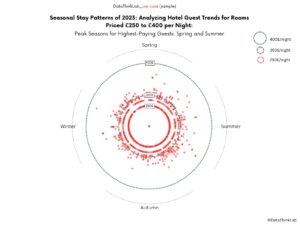
Image credit: DataThinkLab
Data and Neuroscience in Design
a) Olfactive Industry: Elevating Emotions
Yves Saint Laurent Beauté pioneers the fusion of data and neuroscience in the olfactive realm, focusing on deepening emotional connections through scent. Their ‘Scent Station’ offers a 25-minute in-store experience, where customers wear a headset connected to an electroencephalogram (EEG) to monitor emotional responses. An AI algorithm then analyses this data to personalise fragrance selection, showcasing the transformative role of data in crafting more meaningful beauty and scent experiences.
b) Neuro-Architecture: Crafting Well-being Spaces
Neuro-architecture, blending architecture, neuroscience, and psychology, explores how design impacts cognitive functions, behaviours, and emotions. Architects now use AI-enhanced data to tailor building designs to individual preferences, considering factors like air quality and light exposure. This approach goes beyond aesthetics, creating spaces that actively promote physical and mental well-being. Neuro-architecture represents a significant advancement in harmonising traditional architectural principles with AI and data science precision.
Balancing Technology and Humanity in Hospitality
In the face of AI and advanced tech adoption, the hospitality industry’s competitive edge lies in blending innovation with the human touch. By involving employees and integrating AI thoughtfully, hotels can offer uniquely personalised experiences aligned with customer expectations. Technology should enhance, not overshadow, the customer journey, adding emotionally resonant touches or seamlessly incorporating into service aspects. In this era of rapid tech advancement, prioritising human interaction is crucial. The goal is to use data and automation as tools, enriching interactions while striking a delicate balance between technological efficiency and the irreplaceable warmth of the human touch.
Stay tuned, a surge in AI integration is expected within the next two years, marking a transformative period for the industry.
Main image credit: Conrad Hotels & Resorts

